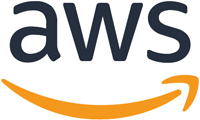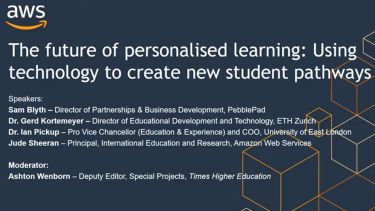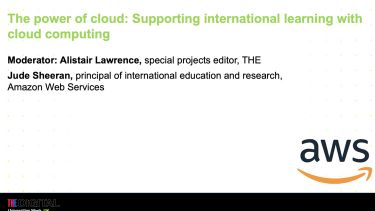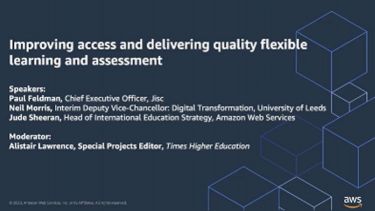For Times Higher Education’s Digital Universities Week, innovators from higher education start-ups met to present some of the latest digital solutions for academic and student life
SCOOCS is a virtual events venue designed to make academic conferences more sustainable. Founded by innovation and sustainability professor René Bohnsack, SCOOCS’ client base now includes software companies, large institutions and music festivals, and has expanded during the pandemic.
“We’ve saved thousands of tons of CO2 and connected people from around the world,” Bohnsack told audience members.
SMOWL is an automated remote invigilation solution for online assessments, founded in 2012. Demand for the software has also increased since the pandemic.
Company representative Patxi Brey said universities had seen “many examples of unorthodox behaviours” taking place with online assessment, but it is SMOWL’s vision to “build trust in online learning environments and support institutions to face the challenges of online”.
ProctorExam is another software solution designed to support universities in their online assessment challenges. The programme uses a duo-view webcam that can be operated through a mobile phone in the student’s home. Online exams can be recorded, and invigilators can access an AI report with basic findings flagging potential exam violations.
Diplomasafe is a software programme providing digital credentials in place of paper exam and graduation certificates, reducing the cost of printing, production and posting. CEO Mikkel Egehave said the company “believe[s] in digital solutions because they offer more transparency and more credibility”.
Traditionally, academics have shared their work at conferences using poster presentations, but the team behind Kubify want to bring this process into the digital age and make conferences more interesting.
The Kubify platform allows academics to upload a wide range of data and resources digitally. Interested parties can access the author’s materials during, or long after, the event.
Annoto is a digital tool that aims to bridge the gap between physical and online learning spaces. The software turns video content into an interactive experience by adding an additional layer: participants can post questions and collaborate through the live stream, and educators benefit from data insights into student engagement levels.
Classlife is an all-in-one institution management platform designed to help universities overcome administrative problems and time constraints that might affect good management practices.
Each user has a personal digital assistant, which allows admin tasks to be condensed and centralised, saving time and reducing the risk of human error in data transfer.
On the theme of reducing administrative workload, Revisely is a marking and grading tool designed to make institutional workflow more efficient.
The tool also aims to standardise feedback by allowing students to filter comments by criteria. CEO Jeroen Fransen said that this function could make feedback easier to decipher and make for “happier teachers and students”.
UniWellBeing is an app co-created by tech and mental health experts, designed to help students proactively take care of their well-being during their studies.
The app hosts a range of early intervention tools and local support contacts, making it quick and easy for students to seek help when needed.
According to the team behind Bolster Academy, maths is a stumbling block for many aspiring STEM students. “The solution would be to offer one-on-one support, but teachers simply don't have the time. Covid has exacerbated this problem,” said CEO Marc Habbema.
Through the app, students can access engaging, customisable content and use it to practise maths on the go.
The Ambassador Platform aims to help universities recruit more of their best-fit students by enabling them to generate authentic user-generated content and facilitate trusted peer-to-peer conversations between prospective applicants and student ambassadors on campus.
Finally, CodeGrade is a digital platform providing an automated grading system for students learning to code. The tool automatically assesses code and performs plagiarism detection on it, for rapid feedback supporting continuous improvement among students.
Watch the session on demand above or on the THE Connect YouTube channel.








